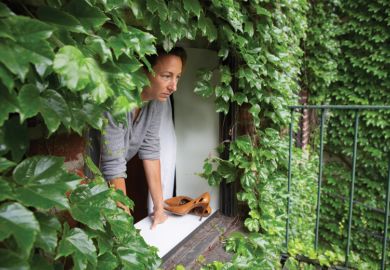Higher education institutions’ role in the transition to a post-industrial society covers not just preparing graduates for new careers but also tackling “rhetoric against immigrants”, according to the next chair of Universities Australia.
Margaret Gardner, vice-chancellor of Monash University in Melbourne, has been elected to lead the nation’s universities after previously serving as deputy chair. She takes up the role in May.
Asked whether the UK’s vote to leave the European Union and Donald Trump’s election in the US might make Australian universities more attractive to academics and international students, Professor Gardner emphasised the shared challenge rather than the potential benefit.
“All universities across the world, including our colleagues in the US and UK...actually have a role through our social scientists, for example, and others in basically countering uninformed views about immigration and in countering views that are racist or in other ways attempt to encourage xenophobic behaviour. That’s a role we all share,” she told Times Higher Education.
Professor Gardner, who will succeed Western Sydney University vice-chancellor Barney Glover as UA chair, continued: “People have to have the opportunity to go to university irrespective of circumstance because we know that capability is not distributed by socio-economic circumstance. We have a responsibility to speak to that.
“We have a responsibility to build a diverse student population because with diversity comes cultural understanding and openness and all the things that are fundamental to building knowledge and building the capabilities to work in the world…an increasingly globalised world.”
This could help demonstrate “that public investment [in universities] makes a big positive difference”, she argued.
The move to a “so-called post-industrial phase, or this knowledge economy phase” is bringing changes in the nature of employment and in turn “making profound changes in communities and in nations”, said Professor Gardner, an economist and specialist in industrial relations.
“Higher education is one way of helping people make that adjustment because it provides for those careers for the future,” she added. “But it’s also part of the discussion about how might we…make these transitions better, how might we mitigate these effects where people feel they are losing opportunities and losing power and [as a result] perhaps being attracted to a rhetoric against immigrants, which is not going to solve that problem.
“We have a role in ideas; we have a role in growth. We have to work to both of them.”
Australia’s universities have been the subject of a long-running policy saga, in which the Liberal-led government shelved plans to remove caps on tuition fees but has left in place plans for an accompanying 20 per cent public funding cut.
“I fully anticipate the government will in its next budget, in one way or another, address the funding of universities,” said Professor Gardner, whose husband is Glyn Davis, vice-chancellor of the University of Melbourne.
She hoped the budget cut plan would be removed and said the government “needs to look at the nature of its investment in universities and be clear that it is actually delivering a significant benefit for the nation…We [education] are the third largest export industry.”
Australia’s removal of student number caps, a policy introduced in 2009, has come in for criticism from the Group of Eight, which represents research-intensive universities. The group has suggested that the policy could put the higher education budget under unsustainable strain.
Professor Gardner, whose institution is a member of the Group of Eight, said that while there was initial “unmet demand so the number of students in the system grew, in the first couple of years, quite rapidly”, growth has since “stabilised”.
When the demand-driven system was unveiled, the aim was that it would help ensure that 40 per cent of young people would hold a degree by 2025.
The goal was based on the idea that the knowledge economy had arrived and it was “the right policy response to that”, Professor Gardner said.
She acknowledged that growth in student numbers under the demand-driven system “does put some pressure” on government spending, but added it was “something that is worth supporting into the future because it is part of the transformation of the economy”.
She continued: “If you aren’t prepared for the transformation in the economy then you will be a less successful, less prosperous nation.”
POSTSCRIPT:
Print headline: Tackle ‘racist views’, UA head tells sector
Register to continue
Why register?
- Registration is free and only takes a moment
- Once registered, you can read 3 articles a month
- Sign up for our newsletter
Subscribe
Or subscribe for unlimited access to:
- Unlimited access to news, views, insights & reviews
- Digital editions
- Digital access to THE’s university and college rankings analysis
Already registered or a current subscriber?








